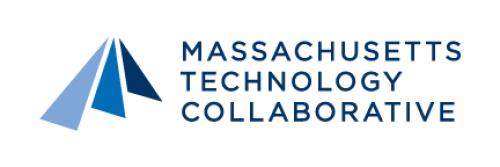WESTBOROUGH - Today, the Massachusetts Broadband Institute (MBI) at MassTech Collaborative announced the extension of several digital equity programs launched through the “Partnerships for Recovery” efforts earlier this year. Supported with $9.2 million in economic recovery funds, the MBI launched public wireless hotspots in unserved towns in western and central Massachusetts and provided digital support for job seekers provided through the Mass. Internet Connect program.
In addition, the MBI has expanded the reach of its digital equity programs, developing regional partnerships to address internet connectivity gaps, including new digital equity projects around the North Shore and Greater Boston.
Continued Support for Job Seekers
Announced in January 2021 by the Baker-Polito Administration, the Mass. Internet Connect program to support unemployed job seekers with digital resources will be extended until June 30, 2022. Through the program, over 4,000 unemployed job seekers in the MassHire system have been assisted with direct subsidies or referrals for internet subsidies, devices, and/or digital literacy services.
Subsidies were initially provided by the state, while MassHire customers after June 2021 have been referred to the federal Emergency Broadband Benefit program.
Job seekers in the MassHire system who are interested in these services should contact their nearest MassHire Career Center.
Extension of WiFi Hotspots in Unserved Communities
Initially launched in April 2020 as a response to the COVID-19 pandemic, the WiFi Hotspot program provided outdoor, high-speed wireless access points in Last Mile municipalities that still lacked broadband access. Built off of the state-owned MassBroadband 123 network, the service was expanded to include indoor hotspots, and reached a peak of WiFi sites in 26 communities. As Last Mile projects have completed, state support for the hotspots has sunset, as homes, businesses, and additional public facilities gain access to high-speed connections.
Through the MBI, the Commonwealth has extended WiFi sites in 11 Last Mile communities that are awaiting completion of their state-supported high-speed internet projects. The extended Hotspots are located in the following communities:
Extended through March 31, 2022
- Blandford - Town Hall (Last Mile project expected to finish Q1 2022)
Extended through June 30, 2022
- Becket - Town Hall
- Charlemont - Hawlemont Regional School
- Florida - Senior Center
- Goshen - Town Office
- Hawley - Town Offices
- Monroe - Town Offices
- New Braintree - Pollard Memorial Library
- Sandisfield - Town Hall
- Savoy - Town Hall
- Tolland - Town Hall
Work continues through the Last Mile program to support the expansion of high-speed internet projects in the remaining unserved communities. Since the re-launch of the Last Mile program in May 2016, over $57 million in state grants have been awarded to support broadband projects in 53 communities. Today, 35 of the 53 Last Mile communities (66 percent) have completed networks and an additional 15 towns have partially-completed projects that have connected some homes and businesses.
New Regional Digital Equity Partnership Programs
In addition to the project extensions, the MBI’s digital equity programs have expanded to other parts of the Commonwealth, building on the success of the current programs to bring connectivity to more citizens statewide and help close the digital divide. These projects and partnerships include:
- Essex County Digital Equity Programs: Approved support for the Essex County Community Foundation (ECCF) to launch digital equity projects in Gateway Cities, including boosting WiFi capacity in public libraries, digital equity programs to support homeless families in transition from shelters, and the development of a free, neighborhood-wide mesh WiFi network. The initial set of communities covered through the partnership include Haverhill, Lawrence, Lynn, Methuen, Peabody, and Salem.
- Metropolitan Area Planning Council (MAPC): MBI is partnering with MAPC to expand access to free WiFI, including projects to address the connectivity needs of public housing residents in Gateway Cities. The initial set of communities covered through the partnership include Chelsea, Everett, Malden, Quincy, and Revere.
###
About the Massachusetts Broadband Institute
A division of the Massachusetts Technology Collaborative, the Massachusetts Broadband Institute (MBI) is working to extend high-speed Internet access to homes, businesses, schools, libraries, medical facilities, government offices, and other public places across the Commonwealth. Learn more at https://broadband.masstech.org.
